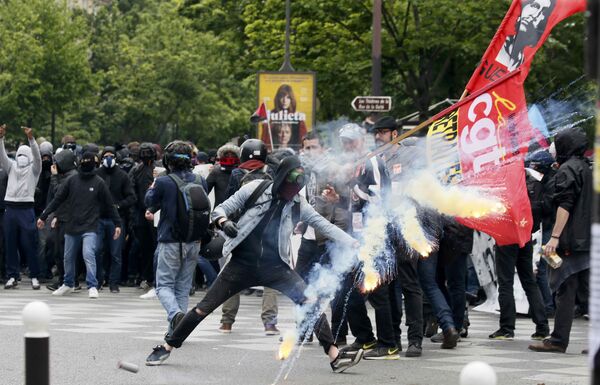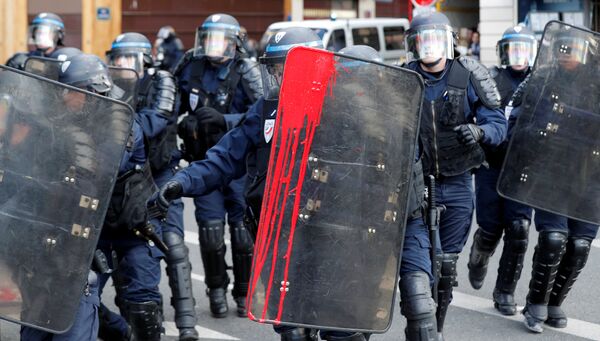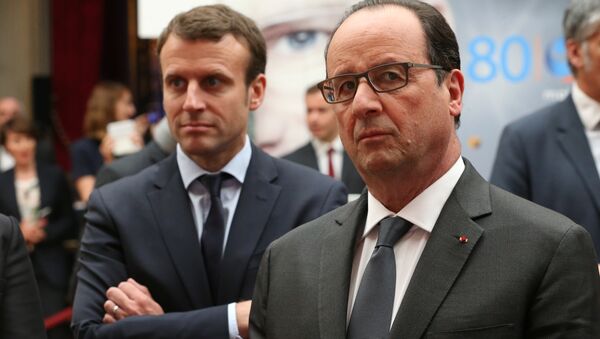He is facing reports of further terror threats in France — according to the latest Europol reports — ahead of the Euro 2016 football tournament, which is threatened with disruption by Paris Metro unions who have called for open-ended strikes to begin the week before the first kick-off.

Hollande told reporters the blockades on refineries and fuel depots that have brought France to its knees this week were the work of a "minority" who oppose the labor reforms. He told Europe 1 radio:
"I will not give way because too many (previous) governments have backed down. I prefer that people remember me as a president who made reforms rather than a president who did nothing."
Hollande — having presided over the Charlie Hebdo and November 2015 terror attacks — is painfully aware of the double threat to his country's staging of Euro 2016, which begins June 20.
Security at all venues is due to be extremely tight — especially in the wake of the attacks on the Stade de France on November 13, where he was watching a friendly.
The fact the he now faces widespread opposition to his labor reforms and continued strikes and protests that could damage the football championships will put pressure on him to U-turn on the reforms, but doing so will simply imply his inability to stamp his authority over the issue.
Deeply Unpopular
According to the latest poll by Odaxa for L'Express newspaper and France Inter radio, only 17 percent of the French consider Hollande to be a "good president." He has struggled to get the French economy moving and blames the strict labor laws — known as the Code du travail — as shackling employers, making them less flexible.

The labor reforms were largely directed at making companies take on more workers on permanent contracts, rather than temporary ones, to bring down the unemployment rate from ten percent. The proposals would give employers more scope to lay-off workers and cut costs and allow some employees to work far longer than the current 35-hour week.
Other reforms include a cap on severance pay for workers dismissed by a company. The current uncertain cost of laying-off workers mean that companies are risk-averse to doing so, leaving them less flexible and — in some cases — less productive. Opponents say the reforms would undermine workers' rights on pay, overtime and breaks.
#France: #IMF backs Hollande’s labor market reform as ‘big step forward’ https://t.co/r2KIBFuLJa via @MarkDeen1 pic.twitter.com/KwW1qf9z7a
— Zoe Schneeweiss (@ZSchneeweiss) 24 May 2016
The reforms would normally pass to the upper house of the French Parliament, where the Republicans have a majority, paving the way for a political ping-pong match, but Hollande's Prime Minister Manuel Valls has won cabinet approval to invoke the rarely-used Article 49.3 of the constitution which allows the reform bill to bypass parliament.



